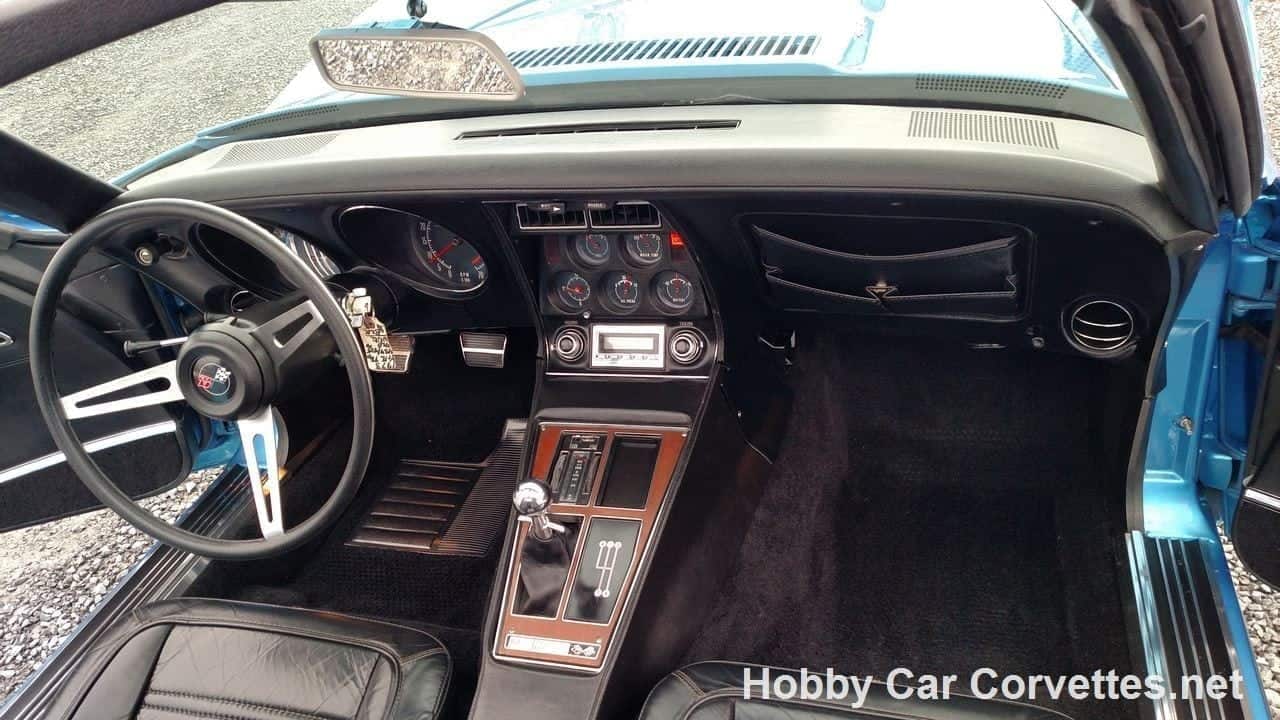Customer service is a role and privilege we do not take lightly here at Hobby Car Corvettes. We are here to happily and reliably answer all your Corvette questions. We answer hundreds of questions every week via email, phone, and in person. After spending many years answering the questions of potential Vette owners, we have noticed some trends and will discuss some of the more commonly asked questions here in our blog.
A BRIEF HISTORY OF VEHICLE AIR CONDITIONING UNITS
A common question, especially from enthusiasts residing in hot weather climates, is “Does the air conditioning work?,” or “Does the A/C blow cold?”. The answer is almost always no, and it is often met with surprise. Out of over 80 classic Corvettes for sale, how is it possible that only a few have working A/C? To understand why this is, you must understand the difference between modern air conditioning systems and those that were in use during the C3 era.
GREAT FOR COLD AIR, BAD FOR THE OZONE
When Chevrolet Corvette C3s were originally on the market, the standard freon or refrigerant used in air conditioning units was dichlorodifluoromethane, more commonly and easily referred to as R-12. R-12 was without a doubt more effective at cooling air to lower temperatures and less likely to leak due to density. On the flip side, while R-12 was a more effective and efficient option for A/C units, it was deemed too harmful for the environment.
The Montreal Protocol on Substances that Deplete the Ozone Layer, officially banned R-12 from use in developed countries in 1996 and in developing countries in 2010. However, the phase out began in 1992. Vehicle manufacturers were banned from installing R-12 systems in 1994.
Unless converted by a prior owner, every C3 Corvette is fitted with an R-12 air conditioning unit. More than likely, several decades later, all that freon has leaked out. Sometimes, a past owner has opted to take out the A/C unit altogether. They opt to trade a defunct system for extra room to work on the engine, and a slight decrease in the car’s weight. When we list these cars, we refer to them as being “X-AC.”
A LESS HARMFUL FREON
WIth the banning of R-12, came the introduction of 1,1,1,2-Tetrafluoroethane, more commonly referred to as R-134a. This gas became the newly required freon to be used in vehicle air conditioning units. R-134a was determined by its creators to have a lower potential for global warming and ozone depletion.
As of recently, it turns out the potential for harm can be even lower with the use of a newly developed freon, HFO-1234yf. While cars from 1994 to 2017 are fitted with R-134a units, going forward it seems that A/C units will be required for the use of HFO-1234yf. This just confirms that as we continue to learn and develop, vintage cars will sometimes be fitted with outdated parts that are difficult or impossible to service.
HOW CAN I HAVE AC IN MY C3 CORVETTE?
Have no fear. Owning a beautiful Chevrolet C3 Corvette, equipped with working air conditioning is not a pipe dream. You do have options. Technically, R-12 is still available for purchase, but it is difficult to find and requires a special license for purchase and handling. So your best option is to convert your unit.
Retrofit kits are available to convert your R-12 unit to the R-134a unit being used today. Basic kits for converting the A/C compressor are available at your local auto parts store, and are very affordable.
THE BEST AIR CONDITIONING CONVERSION PLAN FOR YOUR C3
The downfall of a basic conversion is the rate of leakage. As a freon, R-134a is less dense and tends to leak faster than R-12 did. C3 Corvettes retrofitted with R-134a systems will require recharges every six months to a year. This is because, although the compressor has been converted, the seals are the same. The original seals in your C3 Corvette’s A/C system are designed to contain that much denser R-12 freon. Also keep in mind, these seals are 36-50 years old!
Brand new systems in modern cars have strong seals and very rarely leak. To convert your Corvette’s air conditioning system completely, using modern technology including new seals designed for R134a, you can turn to companies like Vintage Air or Classic Air for a complete system designed for exactly your year and model of Corvette. It’s also a great idea to check in with your local auto A/C specialist. They might be able to design a system for your Vette more affordably, and to your exact specifications. This is the best way to get exactly what you want out of your Chevrolet C3’s air conditioning system.
It is commonly believed that freon may last longer and leak less when the air conditioning unit is used more frequently. It’s difficult to find confirmation of this theory, but it is a theory amongst some vehicle owners nonetheless.
The banning of R-12 and outdating of the R-12 systems, is why the majority of our C3 Corvettes for sale at Hobby Car Corvettes do not have working air conditioning. If the Corvette we acquired came to us with an R-12 unit, the air conditioning will not work because it is no longer chargeable. This doesn’t mean you can never have that nice cool air in your Chevrolet C3 Corvette that you must have in Miami, Florida or Phoenix, Arizona. All you need to do, is look into a retrofit kit.
Here at Hobby Car Corvettes in Martinsburg, PA, we are happy to hook you up with the right resources to get you cruising in style, and comfort.












